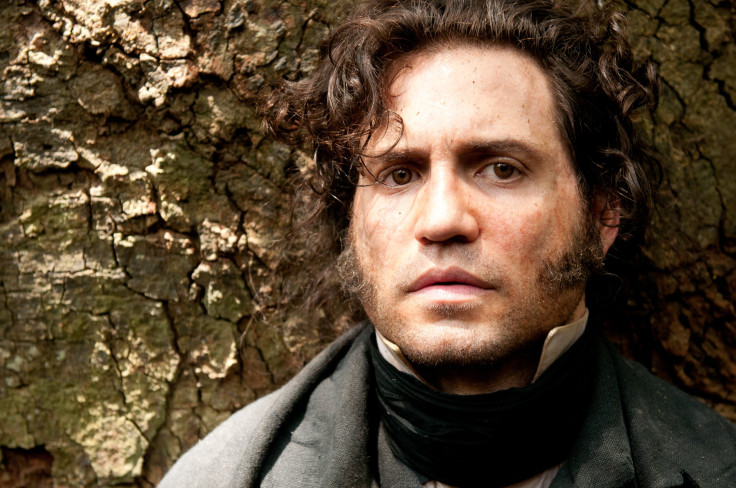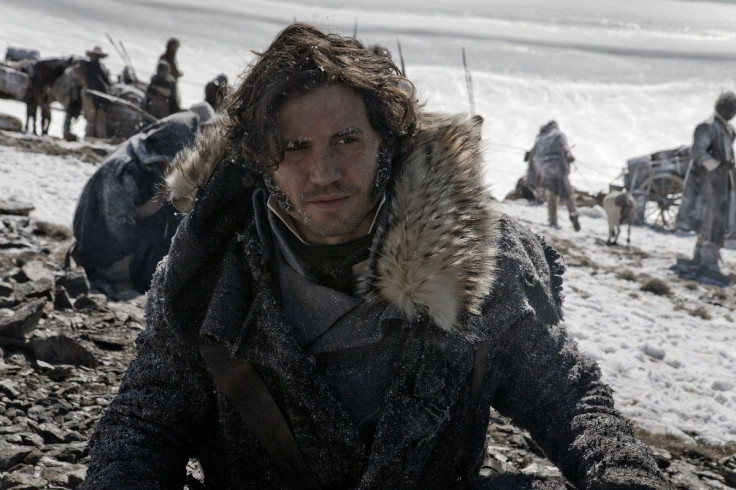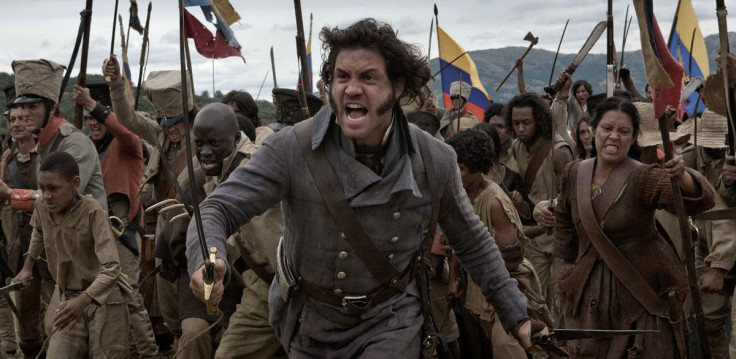
Friday, October 3, is the premiere of The Liberator. A movie directed by Alberto Arvelo and starring Edgar Ramírez. It tells the story of Simón Bolívar, known by most Latin Americans as a man who played a key role in Latin America's successful struggle for independence from the Spanish Empire, and is today considered one of the most influential politicians in the history of the Americas. Bolívar led Venezuela, Colombia (including Panamá at the time), Ecuador, Perú (together with Don José de San Martín), and Bolivia to independence from Spain. Admirers claim that he helped lay the foundations for democracy in much of Latin America.
His work in the continent has transcended centennials, and with this new movie, The Liberator, Bolívar’s story is told from a more humane point of view. From his point of view. Showing him as a person, with flaws and strengths, and building the path to the moment when he became involved with his nation, when he had had enough of being under the yoke of the empire. Over the course of his lifetime, Simón Bolívar fought over 100 battles against the Spanish Empire in South America. He rode over 70,000 miles on horseback.
His military campaigns covered twice the territory of Alexander the Great. His army never conquered, it liberated. The film shows exactly that, and transports you to a whole different era. It is the biggest Latin American film in history, bringing to the equation the fact that it’s a period film, and it couldn’t have looked more accurate. Ramírez, who also served as the executive producer of the movie, finely interprets Bolívar’s growth as a character. It’s a movie that educates, as well as tells a compelling story. Definitely a must-see. We had the opportunity of speaking to Edgar Ramírez, and this is what he has to say about being involved in The Liberator.
Latin Times: What motivated you to get involved in The Liberator?
Edgar Ramírez: First of all, a profound admiration for Simón Bolívar and what he represented for Latin America, and his projects beyond the independence of the majority of the Latin American nations. He had dreamed about forming a nation made up by all the liberated provinces that ended up being countries. But he wanted all of them to join in a federation that could eventually become big enough and powerful enough to have an influential role globally.
When I studied the Bolívar project I asked myself “How different could the world have been if the majority of Latin America would’ve become a great nation with Bolívar’s project? How different would the power balance would have been worldwide had this come true?” That’s something that caught my attention. Instead of being different countries, we could’ve been a bigger nation with all the different talents of each region, their natural resources, communication routes, access to oceans… the world balance would’ve been very different. And obviously, this is a character full of contradictions, like any political, military and historic leader, so that also caught my attention.

LT: What was the biggest lesson learned during the filming of this movie?
ER: I think that one of the biggest lessons was precisely the complexity of being in power. How complex politics are, the amount of little things that move around that you can barely realize. Also the importance of a long-term vision. I think Latin America from a political and economic view, has been characterized for a short-term vision, for immediate and instant satisfaction of needs, so this movie can make you reflect about the importance of a long-term vision, long-term decision making, since it’s been hundreds of years, and we’re still talking about Bolívar.
LT: Watching the film, I couldn’t stop thinking about all the similarities with Venezuela’s current situation. Do you think this movie could encourage the Venezuelan people to find even more ways to somehow resolve the political situation?
ER: I really hope this movie precisely encourages Venezuelans to find a space of reconciliation. I hope this movie will allow that the fragments of Venezuelan society, that is so separated right now, could find a common ground. I hope that any side that watches the movie can find their nobility of spirit and that this film becomes an instrument of reconciliation. That would be my biggest dream for the movie within the current situation in Venezuela.
LT: You were very involved with this movie, both as an actor and executive producer. What do you expect to achieve with The Liberator?
ER: As a producer, what you try to do is to put to the service of the film any skill you may have so it can be done. That’s pretty much the idea. I tried my best to make this move possible, because it was a very risky movie, very expensive and in a huge scale. It’s the biggest Latin American film in history, which was an enormous risk. To come from Latin America, to be an independent movie, being 60 percent in Spanish, about a historic Latin American figure that is not as known outside our frontiers. It was a huge risk, so I did everything I could to help.
LT: What were the biggest challenges while shooting The Liberator?
ER: I think it was the scale of the movie. I had to rise to the occasion to portray Bolívar, and it was a huge deal. Bolívar traveled greater distances than Alexander the Great. He traveled from Caracas to Potosí more than four times in his life by horse. We’re talking about an enormous distance, and obviously, it was very important to tell those aspects in the movie. Sometimes we shot scenes with over 600 extras, numerous horses, and it was a big mobilization. That obviously implies a huge logistic challenge.
Also the sets, the costumes were exquisite thanks to Sonia Grande, who respected the time period but at the same time allowed the character to be relatable in that sense. I think after all this is a period film but with a very modern script, a script that tells the story from the main character’s point of view, which was a challenge for me, because I was in each and every scene of the movie. Bolívar has approximately 164 scenes and I was in all of them. I had to work for four months, Mondays to Saturdays. It was a very interesting challenge, but that’s the beauty of being privileged to do what you love.

LT: How did you prepare to become Simón Bolívar?
ER: I tried to read as many biographies as I could and a lot of historical documents, mainly because I wanted to understand the historic, social, political and philosophical context that the Bolívar ideology encouraged. It was very important to understand all the circumstances that surrounded Bolívar, the circumstances that preceded him, and the circumstances in which he formed his own thinking. How Bolívar was a consequence of the American Revolution, the French Revolution, the actual application of the pragmatic ideals of the Enlightenment, and how world events like the Napoleonic Wars influenced enormously in the Latin American independence.
We need to remember that precisely, the Napoleonic Wars allowed the weakening of Spanish power in this hemisphere, opening up new posibilities for the patriots to aspire an independence, and Bolívar is completely influenced by those events. So for me it was very important to understand him, so I could really put that into the character, let go and put myself in his shoes.
© 2025 Latin Times. All rights reserved. Do not reproduce without permission.





